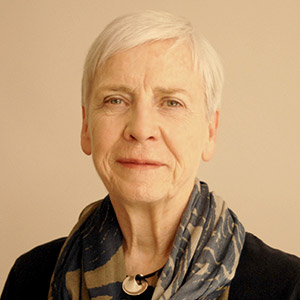 “I don’t know how you do what you do.”
“I don’t know how you do what you do.”
SAMHC Featured Blogger:
Mary Brooksbank
Chair, GriefLink Management Committee
During the past 20 years of my medical career, I was privileged to work as a palliative care specialist at a time when palliative care was just beginning to be seen as a special part of our health system.
It was a significant detour from my previous work as a surgeon, but proved to be an immensely rewarding one.
Colleagues were puzzled that someone could work in this field. “Isn’t it depressing?” or “I don’t know how you do what you do” were common comments. But in supporting someone through a terminal illness, helping them live as fully and comfortably as possible, I met so many amazing people – patients, families and the professional team I worked with. It was truly an enriching experience. And although when death came it was sad, and the grief of family and friends was profound, that’s not the same as “depressing”.
Among the things that did cause me great sadness, however, were stories patients told of friends, even family members, who broke off contact during their illness, crossing to the other side of the street to avoid having to speak to them. That people might be so fearful or not know what to say that they abandoned their old friend now they were ill seemed almost unbearable.
Since I retired and have been working with the GriefLink committee, I realise that this ‘avoidance’ can also apply after death for the person who has lost someone. They, too, may be shunned, particularly if the cause of the death of their loved one was something uncomfortable to talk about, such as suicide perhaps.
Of course, that doesn’t apply for everyone. There are many, many amazing people in our community doing wonderful work, often unrecognised, to help support people through unimaginable losses, such as the death of a child, a sudden accidental death, or death through suicide.
There are the family and friends who rally around with practical support, such as cooking, shopping, gardening etc and most importantly taking the time to listen to the person who is grieving when what they need most is to talk and feel heard.
Grief will touch almost all of us at some time in our lives. But because so many in our community are living longer lives, the death of someone we love may come as a shock, something we have never encountered before. And the grief that follows may be unfamiliar. And that’s where GriefLink can help.
The web site https://grieflink.org.au was set up 20 years ago to provide information about what grief can feel like, to offer pointers on coping with your loss https://grieflink.org.au/coping-with-grief, and to offer guidance to those around you as they support you in your grief https://grieflink.org.au/supporting-the-bereaved.
There is no one way and no set time for grief but most people, with the help of loving family and friends, can gradually rebuild their lives without the person who died. But if you are wondering whether other people are going through similar experiences, or if things aren’t going well, if you are alone, or if your grief is overwhelming, GriefLink offers links to support groups who may be able to help in your particular loss and provides links to emergency contacts and resources.
Grief can be difficult and complex and some people will need expert guidance and help to get their life back on track. But for most people, they will gradually find the resources to cope, within themselves and with the help of the people around them.
As a community, and as individuals, we all need to realise how powerful simple kindness can be – in our workplace, in the street, and with our families and friends.
Depending on the situation, a smile, using the R U O K approach, taking time to stop and listen to a story, offering a cup of tea perhaps, are important ways to ‘be there’ for someone, and show that a life of connection can go on.
It’s really not rocket science.
By Mary Brooksbank AM, MB BS, FRACS, FAChPM
Chair, GriefLink Management Committee
www.grieflink.org.au
Mary Brooksbank has worked in medicine for 40 years, including as a General Surgeon, specialising in burns surgery at the Royal Melbourne Hospital and Birmingham Accident Hospital. Mary was also the Director of the Palliative Care Unit, Royal Adelaide Hospital, and Medical Director, Mary Potter Hospice, Calvary Hospital. She retired in 2009 but continues her role as the Chair, GriefLink Management Committee.
Mary is a mother of three, an historian, computer software engineer and a sociologist, who has lived in the UK, Canada, US and Sweden. She is a keen hiker particularly in Japan.
SAMHC Featured Bloggers
The SAMHC presents our series of guest featured bloggers who generously share their personal thoughts and experiences of mental health and wellbeing.


